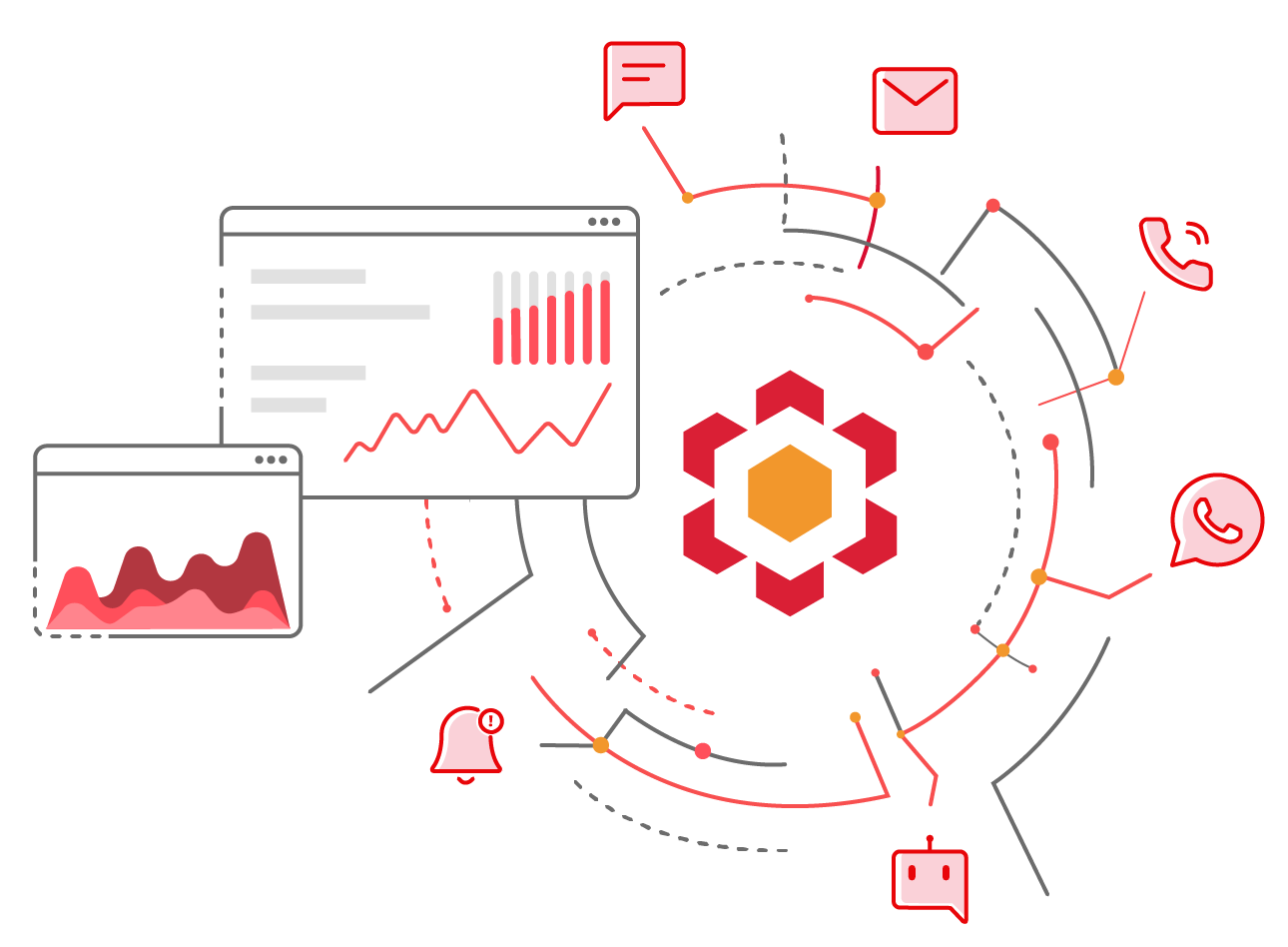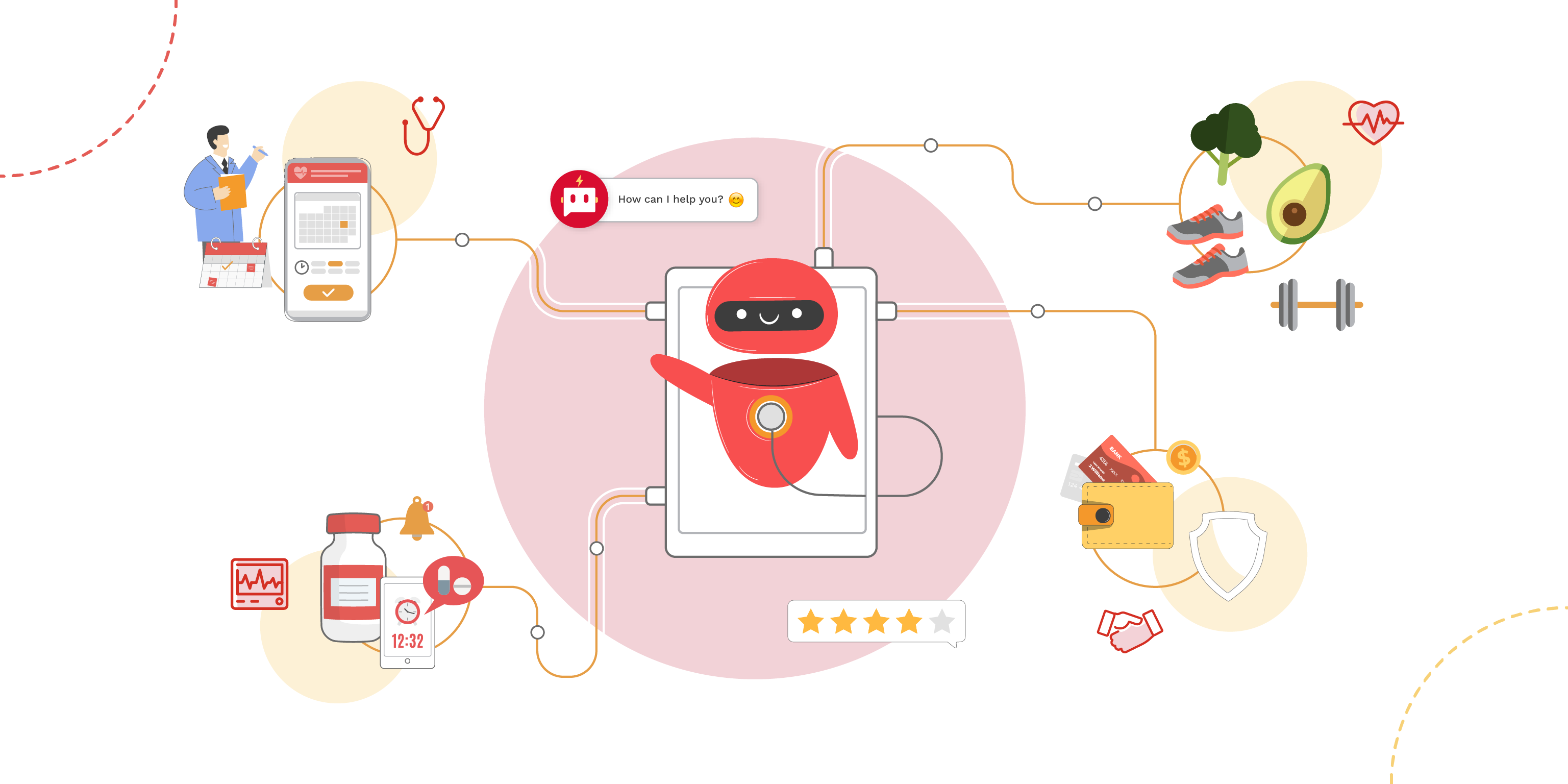The need for innovation in healthcare has never been more pressing. Patient demand is surging, staffing shortages persist, and people are gripped by health anxiety in a post-pandemic world. To meet these compounding challenges, healthcare organizations must pursue digital transformation that enables exceptional care and experience.
This is where CPaaS comes in. It provides the ideal cloud-based solution for revolutionizing healthcare communication. Without requiring on-premise hosting, it seamlessly integrates every communication channel into one cohesive platform. This empowers healthcare organizations with the robust flexibility needed to connect with patients across channels and orchestrate seamless, personalized care journeys.
By unleashing the transformative power of CPaaS, healthcare providers can meet today’s challenges head-on to deliver unparalleled patient experiences that place care, trust and outcomes first.
Streamlining Workflow Efficiency in Healthcare Facilities
CPaaS enables healthcare facilities to streamline their workflows significantly. Let’s explore how CPaaS contributes to operational efficiency in healthcare settings.
Automation of Administrative Tasks
One of the primary benefits of CPaaS in healthcare is its ability to automate routine administrative tasks. Appointment scheduling, patient registration, and follow-up communications can be managed through CPaaS platforms, reducing the manual effort required and minimizing human error.
For example, CPaaS can automatically send appointment reminders and required updates to both patients and healthcare providers via SMS or email, ensuring everyone is informed in real-time and reducing the incidence of missed appointments.
Enhanced Communication and Coordination
Effective communication is crucial in healthcare, where multiple teams often need to coordinate closely for patient care. CPaaS offers robust tools that facilitate better communication and coordination. By integrating CPaaS, healthcare providers can set up real-time messaging and information-sharing channels across departments. This seamless communication ensures that all care team members are on the same page, whether updating treatment plans, sharing test results, or coordinating patient discharge procedures.
Real-Time Response Management
CPaaS enables real-time interactions, which are essential for managing emergencies and critical care scenarios. For instance, if a patient’s condition worsens, CPaaS can trigger immediate alerts to the relevant healthcare professionals. This instant notification allows for quicker response times, potentially saving lives and preventing minor issues from escalating into serious problems.
Optimizing Staff Allocation
Through the data collected and processed by CPaaS systems, healthcare administrators can gain insights into peak operation times, patient flow, and staff workloads. This information is invaluable for optimizing staff allocation, ensuring that enough healthcare providers are available during busy periods without overscheduling during slower times. Efficient staff allocation not only improves patient care but also enhances job satisfaction among healthcare workers by preventing burnout.
Integration with Existing Healthcare Systems
CPaaS platforms are designed to integrate seamlessly with existing healthcare IT systems, including Electronic Health Records (EHR), Laboratory Information Systems (LIS), and Pharmacy Management Systems (PMS). This integration capability means that information can flow effortlessly between different systems, reducing the need for manual data entry, minimizing errors, and speeding up information retrieval, which collectively enhance workflow efficiency.
Improving Patient Engagement and Education
Engagement and education are pivotal in empowering patients to take an active role in their healthcare journey. CPaaS offers innovative solutions that can significantly enhance the way healthcare providers interact with and educate their patients.
Personalized Communication
CPaaS enables healthcare providers to send personalized messages to patients, based on their specific health conditions or treatment plans. Such customized communication can include medication reminders, instructions for post-operative care, or advice for managing chronic conditions. By using patients’ preferred communication channels, be it SMS, email, or mobile apps, CPaaS ensures that these messages are more likely to be read and acted upon, enhancing patient compliance and engagement.
Interactive Educational Resources
With CPaaS, healthcare providers can easily distribute educational content that is both engaging and informative. This might include interactive videos, infographics, or Q&A sessions delivered directly to the patient’s mobile device. For example, a patient with diabetes could receive video content on dietary recommendations, exercise tips, and insulin usage, all tailored to their personal health profile and learning preferences.
Real-Time Feedback and Support
CPaaS technology facilitates real-time interactions, which are crucial for immediate support and feedback. Patients can ask questions and receive answers in real-time, which is particularly valuable after consultations or procedures when doubts or complications might arise. This immediate access not only reassures the patient but also ensures they are correctly following medical advice, thereby reducing the risk of complications.
Scheduled Push Notifications for Health Management
Healthcare providers can use CPaaS to set up scheduled push notifications reminding patients of upcoming health checks or preventive screenings. These reminders can be personalized based on the patient’s health history and risk factors, ensuring they are timely and relevant. This proactive approach helps in maintaining continuous engagement with patients and encourages them to be regular with their health assessments.
Enhancing Digital Literacy
As part of patient education, CPaaS can also be used to improve digital literacy among patients, particularly the elderly or those unfamiliar with digital tools. Educational programs on how to use health apps, access electronic health records, or communicate via telehealth platforms can be delivered through CPaaS. This not only helps patients feel more comfortable using technology but also ensures they can fully engage with digital health services.
Enhancing Remote Patient Monitoring
Remote Patient Monitoring (RPM) represents a critical advancement in healthcare, enabling continuous care for patients outside of traditional healthcare settings. Let’s take a look at how CPaaS significantly enhances the capabilities of RPM systems by facilitating real-time data communication and personalized patient interactions.
Real-Time Data Transmission and Alerts
CPaaS technology integrates seamlessly with various health monitoring devices, such as blood pressure monitors, glucose monitors, and wearable fitness devices. Through CPaaS, the data collected by these devices can be transmitted in real-time to healthcare providers. This instant data transfer allows medical professionals to monitor patients’ health conditions continuously and react promptly if the data indicates a potential problem. For example, if a patient’s glucose levels drop significantly, CPaaS can trigger an immediate alert via SMS or WhatsApp to both the patient and their healthcare provider, prompting quick intervention.
Isansys, a digital healthcare company, developed the Patient Status Engine (PSE) to improve patient monitoring and deliver timely care. The PSE uses wearable sensors to collect patient vitals and calculate Early Warning Scores (EWS), alerting healthcare providers to potential deterioration. To enhance communication, Isansys partnered with Kaleyra to integrate WhatsApp API into the PSE.
This integration enables real-time EWS alerts to be sent to healthcare providers via WhatsApp, facilitating faster intervention and improving patient outcomes. The collaboration has led to reduced mortality rates, shorter hospital stays, and cost savings, demonstrating the power of secure and timely communication in healthcare.
Personalized Monitoring Plans
With CPaaS, RPM systems can be tailored to meet the unique needs of each patient. Healthcare providers can customize monitoring frequencies, alert thresholds, and communication preferences based on individual health conditions, lifestyles, and risk factors. This personalization ensures that monitoring is not only consistent but also relevant to each patient’s specific health requirements, improving the effectiveness of the monitoring and the patient’s adherence to treatment plans.
Enhanced Patient Engagement and Compliance
CPaaS contributes to higher levels of patient engagement and compliance by facilitating interactive and frequent communication between patients and healthcare providers. Patients can receive motivational messages, health tips, and reminders to take medication or perform necessary health checks directly on their mobile devices. This continuous engagement helps keep patients informed about their health status and involved in their care processes, which is crucial for the success of RPM programs.
Scalability and Flexibility
One of the significant advantages of CPaaS in RPM is its scalability and flexibility. Healthcare providers can easily scale up their monitoring capabilities as patient numbers grow without significant investments in new infrastructure. Additionally, CPaaS platforms can adapt to include new types of monitoring devices and communication technologies as they become available, ensuring that RPM systems remain cutting-edge.
Integration with Healthcare Systems
CPaaS platforms are designed to integrate efficiently with existing Electronic Health Records (EHR) and other healthcare management systems. This integration enables a seamless flow of information between RPM devices and patient records, ensuring that all patient data is consolidated and accessible. This holistic view of patient data aids healthcare providers in making more informed decisions and providing more coordinated care.
Conclusion
The growth of the global CPaaS market presents a tremendous opportunity for revolutionizing healthcare communications. As providers look to enhance patient interactions and create efficiencies, integrating advanced CPaaS solutions is critical.
CPaaS enables data-driven personalization and AI-powered solutions to transform the patient’s experience. Leveraging these technologies will empower patients and ensure healthcare delivery is responsive, efficient, and patient-centric. Modern communication strategies are key to elevating care in the digital age. By embracing CPaaS, healthcare organizations can truly put patients first and shape the future of personalized medicine.

Harish Thyagarajan
Content Marketer
Supercharge Your Communication!
Get in touch with our experts who strive hard to bring the very best in cloud communications technology to you.


